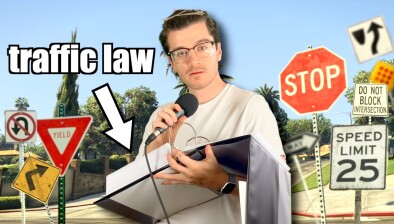High Court: Drug driving conviction quashed following misinterpretation of Road Traffic Act 2010

The High Court has quashed a drug driving conviction where the Circuit Court found by implication that the arresting garda had formed the requisite opinion that the applicant had committed an offence under s. 4(1A) of the Road Traffic Act 2010.

About this case:
- Citation:[2024] IEHC 317
- Judgment:
- Court:High Court
- Judge:Ms Justice Marguerite Bolger
Delivering judgment for the High Court, Ms Justice Marguerite Bolger stated: “At least part, if not most of, the basis for the decision of the Circuit Judge was that subs. (1A) was somehow part of subsection (1). That is a misunderstanding of subs. (1A) of section 4. Hypothetically there could have been a s. 4(1)(a) (which does not appear in this legislation) i.e. a subsection (a) of subsection (1). Such a provision is an entirely different statutory concept to section 4(1A).”
Background
On 7 May 2021, the applicant was stopped by gardaí at a checkpoint. He was found to have no visible tax or insurance disk, and a strong smell of cannabis was detected. Upon a search being conducted, cannabis was found in the car.
Having regard to the applicant’s demeanour and the smell of cannabis from the car, gardaí formed the view that the applicant was under the influence of an intoxicant and conducted a saliva test pursuant to s.9A of the Road Traffic Act 2010, as amended, which was positive.
The garda informed the applicant that he had formed the opinion that the applicant was under the influence of an intoxicant to such extent that he was rendered incapable of having control of a vehicle in a public place contrary to s.4(1) of the 2010 Act. The applicant was arrested and a blood test conducted pursuant to s.13B(1) of the 2010 Act confirmed the presence of cannabis.
The Circuit Court
In the course of the applicant’s hearing, the garda informed the Circuit Court that he had arrested the applicant under s.4(8) of the 2010 Act for an offence contrary to s.4(1), (2), (3) or (4) and had explained to the applicant in ordinary language that he was arresting him on the suspicion of drug driving.
The applicant contended that the evidence given did not confirm an opinion that the applicant had committed an offence under s.4(1A) as required by s.13B(1). The DPP asserted that the garda’s evidence of arresting the applicant for offences contrary to s.4(1), (2), (3) or (4) included s.4(1A).
The Circuit Court summarised that the issue was whether s.4(1) included s.4(1A) and concluded that it could not see how it could be correct that the evidence given by the garda excluded s.4(1A). Having been convicted, the applicant brought judicial review proceedings.
The High Court
Ms Justice Bolger set out the relevant legislation, including s.13B of the 2010 Act which provides inter alia that where a person is arrested under s.4(8), and where a garda, having carried out a saliva test “is of the opinion that the person has committed an offence under section 4 consisting of a contravention of subsection (1A) of that section or an offence under section 5(1A) the member may, at a Garda Síochána station or hospital, require the person to permit a designated doctor or designated nurse to take from the person a specimen of his or her blood”.
The judge also set out inter alia s.4(1) of the 2010 Act, which states:
“A person shall not drive or attempt to drive a mechanically propelled vehicle in a public place while he or she is under the influence of an intoxicant to such an extent as to be incapable of having proper control of the vehicle”, and s.4(1A) which states that “Subject to subsection (1B), a person shall not drive or attempt to drive a mechanically propelled vehicle in a public place while there is present in his or her body a quantity of a drug specified in column (2) of the Schedule such that, within 3 hours after so driving or attempting to drive, the concentration of that drug in his or her blood is equal to or greater than the concentration specified in column (3) at the same reference number.”
The High Court noted: “At least part, if not most of, the basis for the decision of the Circuit Judge was that subs. (1A) was somehow part of subsection (1). That is a misunderstanding of subs. (1A) of section 4. Hypothetically there could have been a s. 4(1)(a) (which does not appear in this legislation) i.e. a subsection (a) of subsection (1). Such a provision is an entirely different statutory concept to section 4(1A). It could not be suggested that s. 4(1) includes s. 4(1A) even though it might be possible to argue that a hypothetical s. 4(1)(a) would have been included in s. 4(1).”
Emphasising that s.4(1A) was introduced by the Road Traffic Act 2016 to create a new offence, which also inserted a new s.13B, Ms Justice Bolger found that the “new offence in the new s. 4(1A) is nothing to do with s. 4(1) other than it is situated after s. 4(1) in the Act, as amended. There is no question that s. 4(1) includes s. 4(1A) or that s. 4(1A) is or might be ‘tagged on’ to section 4(1).”
Turning to s.13B, the court pointed out that the section is a penal provision as it creates an offence for a person to refuse or to fail to furnish the blood specimen required of them, and should be strictly construed rather than taking the usual “common sense” approach to evidence.
Considering that gardaí are permitted by s.13B to exercise their significant power to procure a blood test only where they are of the opinion that an offence under s.4(1A) or s.5(1A) has been committed, the High Court determined that a “more onerous” standard of proof to establish the existence of an opinion arose.
Ms Justice Bolger reasoned: “Section 13B cannot be satisfied by what the Director submitted was an opinion that the garda would have been entitled to form on the basis of the roadside test alone (set out at the respondent’s submissions at para. 34). Whether or not the garda could have formed the opinion on the evidence is not the issue. What matters is whether the Director has established compliance with s. 13B, i.e. that the garda ‘is of the opinion’ that the person has committed an offence under s. 4(1A) or section 5(1A).”
The judge continued: “Section 13B is a mandatory provision which must be followed… It cannot be satisfied by evidence that is claimed to have been established by implication, particularly where the evidence may be used to establish the committing of an offence.”
The High Court concluded that the Circuit Court, insofar as it determined that the garda’s evidence could not have excluded s.4(1A), was not entitled to find by implication that the garda had given evidence of having been of the opinion that the applicant had committed an offence under s.4(1A).
Conclusion
Accordingly, in circumstances where the garda had no power to require a blood sample, the Circuit Court erred in finding that the requisite opinion had been established and the High Court quashed its decision and invited submissions on the issue of remittal.
McGuinness v Director of Public Prosecutions [2024] IEHC 317









